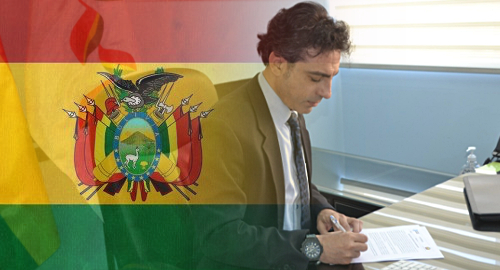 Bolivia is the latest jurisdiction taking a fresh look at legalizing online gambling as the country’s efforts to disrupt unauthorized operations prove inadequate.
Bolivia is the latest jurisdiction taking a fresh look at legalizing online gambling as the country’s efforts to disrupt unauthorized operations prove inadequate.
Last Friday, Juan Carlos Antonio Abrego (pictured), executive director of Bolivia’s Gambling Control Authority (AJ), presented his group’s new guidelines for the regulation and control of the nation’s gaming sector. Among the possible changes that lie ahead are the introduction of “regulations that will allow controlling and regulating online gambling.”
For the record, this isn’t the first time Bolivia has publicly mulled about a regulated online market, having produced reports on the subject as far back as 2012. In 2017, the AJ conducted a study of how other Latin American markets, including Colombia and Costa Rica, had approached online gambling regulation, but Bolivia’s government failed to give the regulator the green light to proceed.
Bolivia’s gambling market is currently limited to a national lottery, one private casino operator (Curucusi Games) and a handful of sports betting shops, in part due to the government setting an onerous 30% tax on gambling revenue. This has created fertile opportunities for unauthorized operators, both land-based and online, with which the AJ is perpetually at war.
Abrego’s declaration promised action on the tax issue, saying “the tax regime in games of chance will be adapted in order to attract new investments and provide the necessary conditions to create a gaming industry, which will also contribute to the elimination of illegal sites that do not give any guarantee to users.”
Given the regulator’s previous online regulatory musings, it remains to be seen how much of the AJ’s pledges are merely aspirational, i.e. is the government on board with the proposed changes. Abrego was sworn in as the AJ’s new boss last December with a brief from the Ministry of the Economy to make gambling activity ‘transparent’ and to foster greater employment from the gaming sector.
Operators will likely wait to see how the tax rate is ‘adapted’ as well as clarifying other regulatory details before rushing to submit online applications in a country with a population of only around 12m.